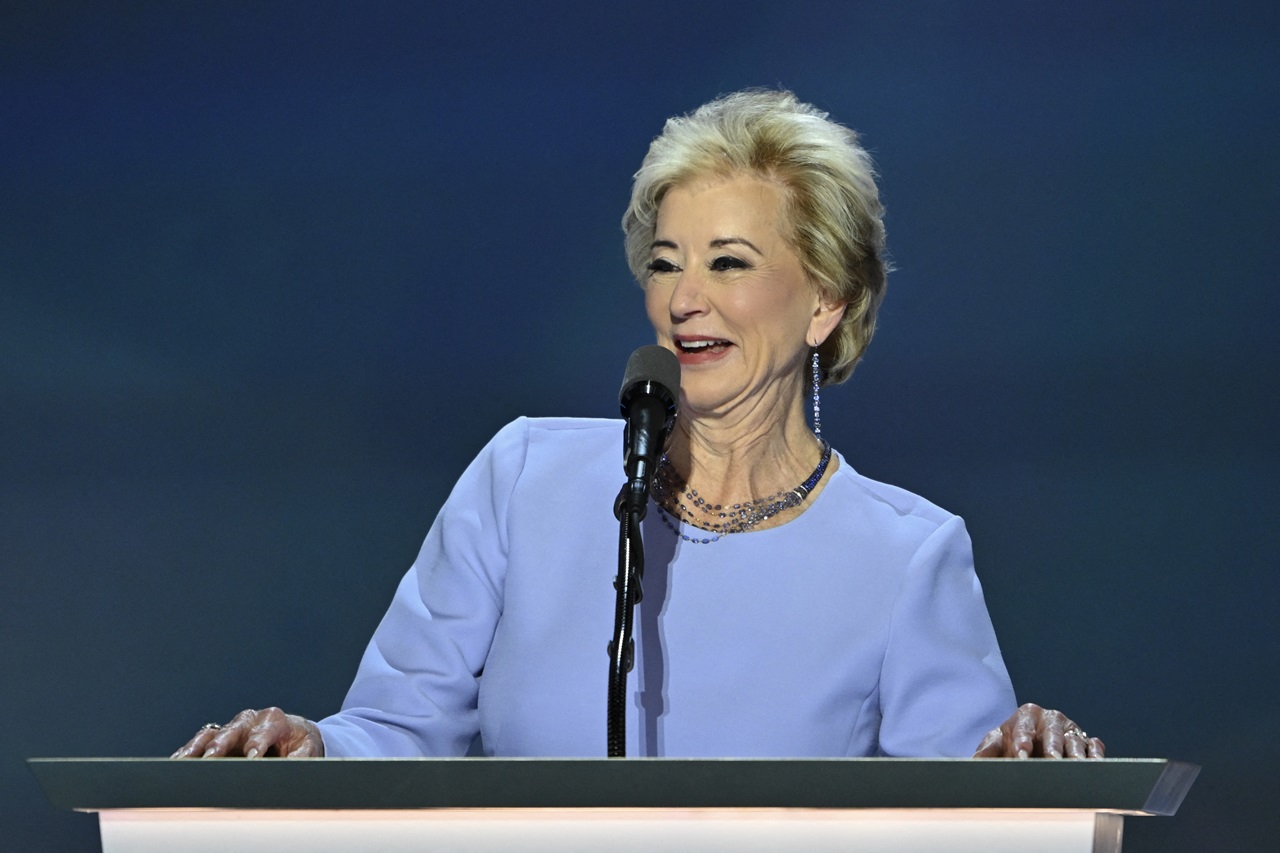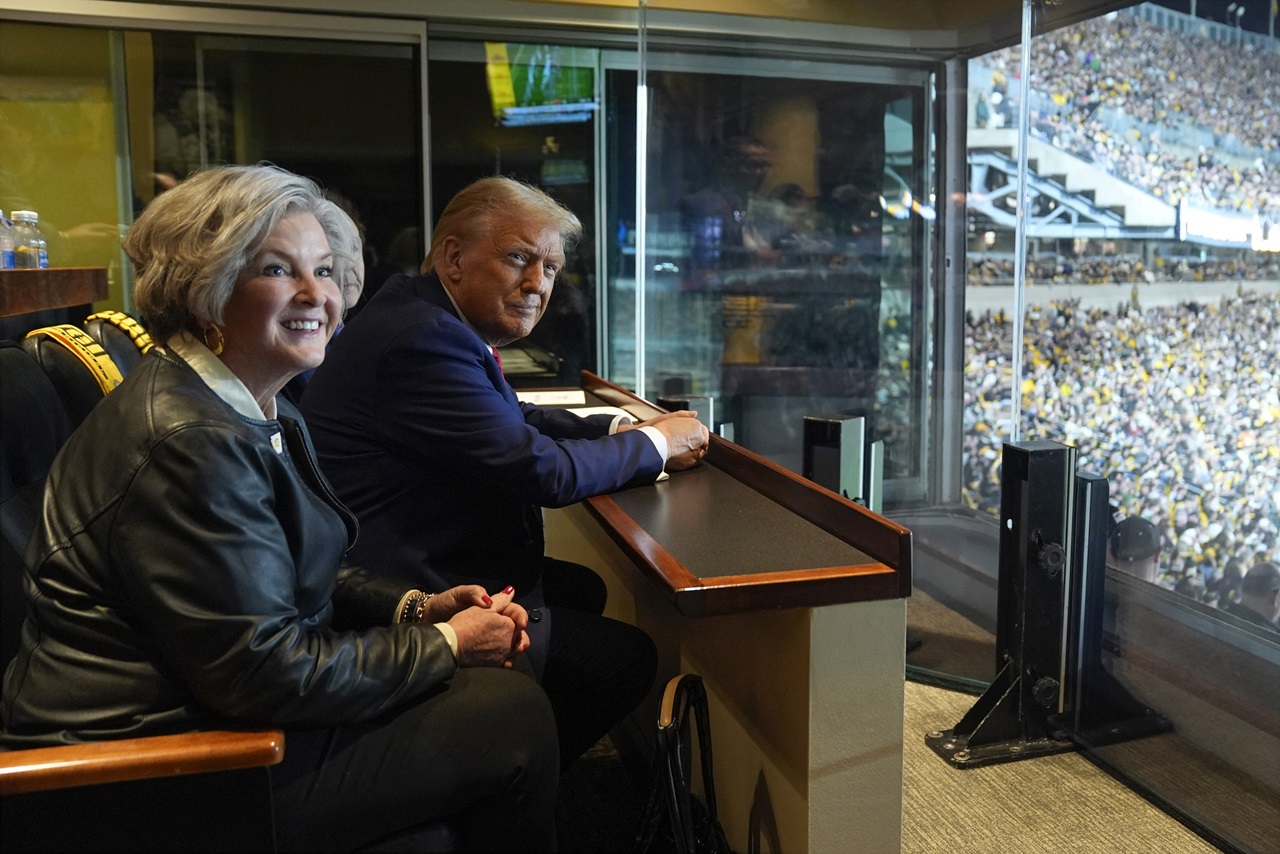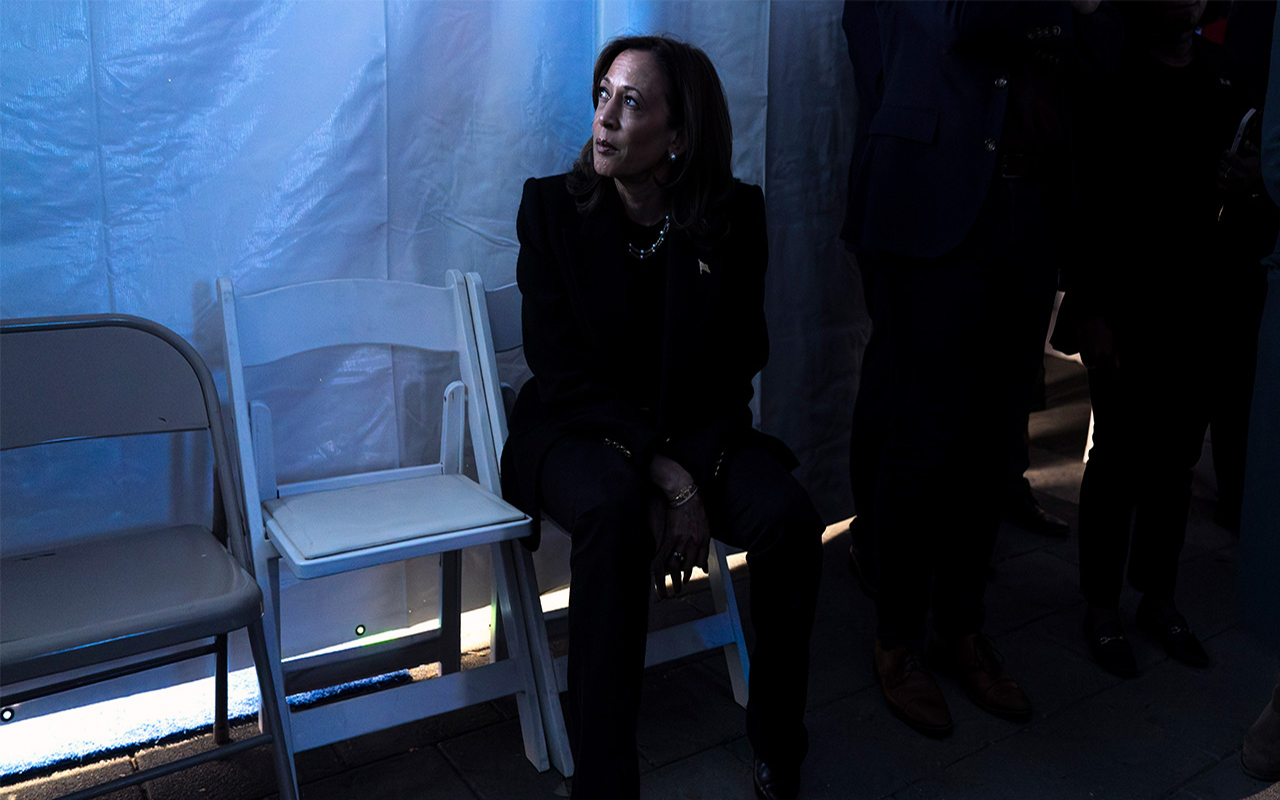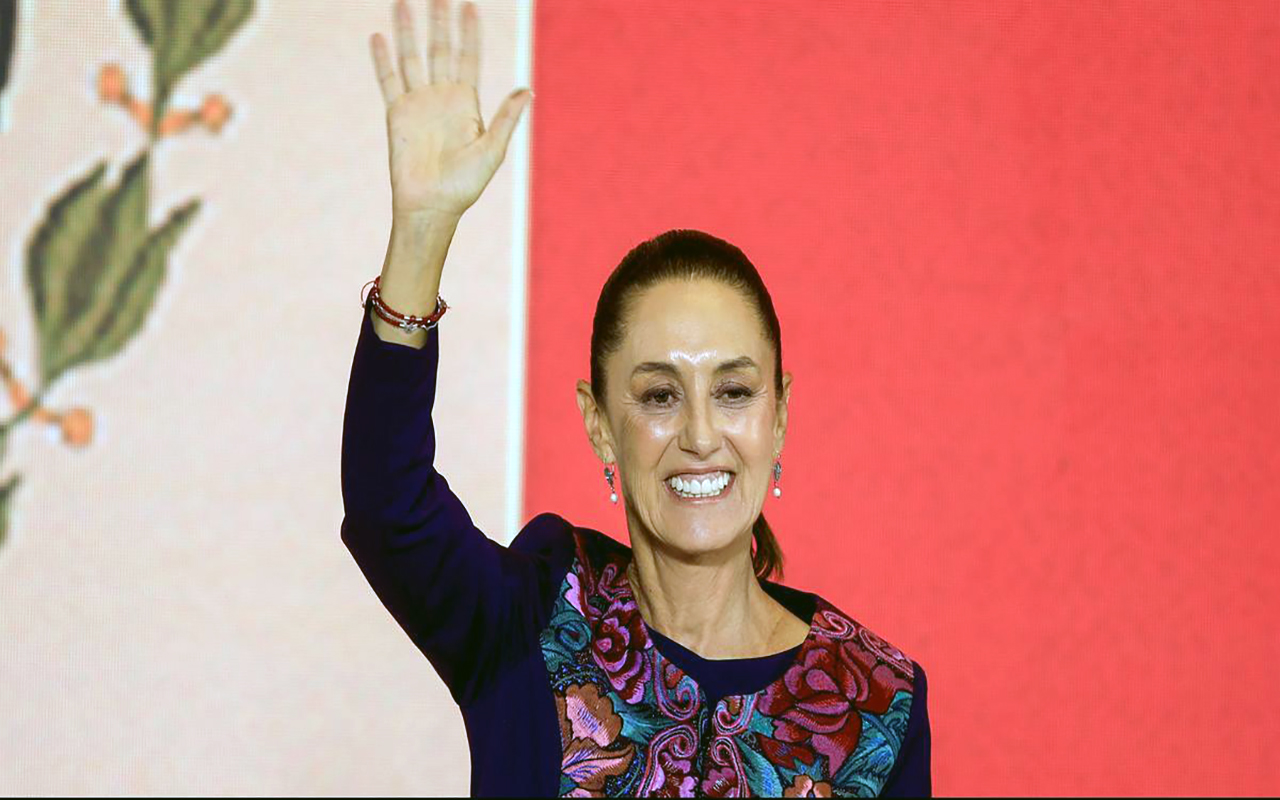U.S. Attorney Jacqueline Romero is ready for her "tremendous responsibility"
Jacqueline Romero’s story is one she hopes will inspire a new generation of lawyers.
Jacqueline Romero is U.S. Attorney for the Eastern District of Pennsylvania, the top dog role assigned to handle the commonwealth’s most trying legal business. She’s a prosecutor in the trenches of the federal government’s purview at the state level, often working cases that emphasize the high-stakes work of the rule of law. During an overcast Tuesday afternoon, on Sept. 6, Romero sat down with AL DÍA in an executive conference room situated on the 12th floor of the U.S. Eastern District of PA office, overlooking Independence Hall, birthplace of the nation’s constitution.
The week before, President Joe Biden had been in the same courtyard of Independence Hall to give a primetime speech to the nation on the state of Democracy, but Romero had an FCC meeting that night.
She wore a dark executive suit and pointed heels, ready to tackle our interview the way she would any meeting to discuss a topic or case. It felt as though adjustments to her schedule were minimal; she would do the interview in a conference room adjacent to her office for a generous two-hour block, monitored by her press director, who helped arrange the time a few weeks in advance.
Romero asked if her posture was okay and wanted to ensure she smoothed out details before starting the conversation.
“Just sit comfortably. You’ll be there a while,” she was told by her press director.
Perhaps those words resonated another way for Romero, who rose to her post in January 2022, with four years left on her term.
Interviews, profile pieces, and press curiosity are ubiquitous for folks in her role, but she’s still finding her footing amid increased visibility, and like any other task, she wanted to do it well. And to do things “well” was a no-brainer for Romero, a New Jersey native and daughter of Spanish immigrants who owned a diner, where she worked in her teenage years.
Beyond the barriers
“I think I’ve always felt like I was surpassing barriers, and maybe not in a traditional way,” Romero reminisced.
Romero has a record of firsts in her life. First to go to a four-year collegiate institution, first to go to graduate school, in her case, a law program at Rutgers University, and first to pursue a full career in the legal field, now the first and possibly last in her family, statistically speaking, to become a U.S. Attorney for the Commonwealth.
“If you’ve ever tried to achieve something for the first time, it’s really difficult if you don’t have a roadmap. And you’re piecing together the hows and whys and wheres and whens (...) it all feels like a barrier of some sort,” Romero said of her first encounter working at a law firm.
She related it to her time working in a diner with her parents.
“I shouldn’t say [the firm] taught me a work ethic, the likes of which most people will never experience in this lifetime 'cause I had that. I grew up in a diner. When you have a family business, the work never ends. Whether it’s midnight or 4 a.m., stuff needs to get done,” Romero said, adding how that experience has shaped her approach to government work as well. Namely the hours. But she said she thrives in the dirty work, from her time in what she calls “old Rutgers,” figuring out equipment, the long hours at the firm, etc.
That perspective served her well. Her foray into government work happened just two years after working at a private firm when the Department of Justice hired Romero as a litigator, which was highly unusual for a rookie attorney two years out of a private firm at 27 years old. The how, for her, was taking on pro bono work at the firm, which led her to courts, giving her the ability to develop a body of experience during her short stint in private practice.
“I was going in there with two years of experience because I had used my time at the firm wisely,” Romero said while recalling the complex nature of the cases she tried, like parental rights matters, where the family's future hinged on the ruling.
“I was a Jersey girl and had never really traveled. And here I was with the Department of Justice, traveling around the country and handling really complex matters (...) One big trial I had was a five-month trial. That’s unheard of for someone with those years of experience,” Romero continued.
Pivot, learn, repeat
She spent much of her time in federal courts around the country, navigating sophisticated legal environments and working with banking professionals from the nation’s top 10 firms in a court setting. When asked if there were any failures along the way, she evoked an earlier sentiment from the interview, doing something for the first time.
It’s very much the same for the practice of journalism, and Romero agreed. Learning in the field who to speak to and how. It’s a skill developed along the way and something the Commonwealth’s chief legal officer says is instrumental.
“You’ve gotta be able to pivot,” she said.
Upon traveling and litigating through the nation’s federal courts, Romero found herself pivoting in many forms. She recalls an exchange with a judge during trial where she was called to the bench, known in the legal field as a sidebar, and she was told to “tone it down.”
She chuckled and acknowledged the exchange was due to her Jersey roots, but heeded the message.
“You’ve gotta be willing and able to learn from that experience and to present in a way for every kind of setting,” Romero said. “Being in courts around the country, you meet people in courts from all walks of life who see the world differently, and sometimes you have to meet them where they are in a particular case. I learned a lot from that.”
RELATED CONTENT
Transforming public perception
Romero certainly brings that view into her office, a place she ensures is representative of the very same public it serves.
“The public’s view of the court might be different, and that’s fair. When we are looking at how we can better the court, we’re trying to get more diversity (...) In my office, diversity is very important to me. That my Assistant U.S. Attorneys reflect the community that we serve because of perception,” Romero remarked.
For regular folks, courts seem like institutions far removed from the public eye. Notably distant from public discourse, though not necessarily protected from scrutiny. The very context this piece is written in finds itself in the midst of the most unpopular view of the nation’s highest court, following the reversal of a historic, landmark federal precedent. And it oftentimes takes legal analysts and court reporters to make sense of those decisions that, although specific to a setting, represent courts and jurists nationwide. Romero’s experience in that same setting, she said, speaks to just outcomes, though she is aware of the negative perception.
Some of the ways Romero combats those notions is by making herself present in the very institutions she felt underrepresented. In 2017, she joined the Faculty at Temple University School of Law and taught there for five years in the Trial Advocacy Program.
The U.S Attorney sought to become the mentor she had throughout her career by joining the Hispanic Bar Association of Pennsylvania, where Romero served as its President in yet another streak of firsts. The first woman, woman of color, and LGBTQ+ identifying individual to assume that role, although she’s no longer there due to her current position, representing the attorney general’s office.
“I needed a lot of people to point me in the right direction at a young age, and I believe in that,” said Romero.
At the pinnacle
On her ascension to now lead the U.S Attorney’s office, Romero calls it the pinnacle of her career, though a tremendous responsibility. From deciding which cases to pursue, balancing a $25 million budget, and managing press, Romero calls it overwhelming.
When she got the news that President Joe Biden had nominated her for the spot, it was a larger-than-life moment, and she immediately made some important phone calls.
“I’m pretty sure I called my mom right away,” Romero told me, suddenly aware of the journey that led her to our sit down. “I get emotional even talking about it. You know, my grandparents were laborers. My grandmother cleaned other people’s toilets. My dad flipped burgers in our family diner. That phone call was very emotional to say that I got this job.”
Romero then pointed over her shoulder to Independence Hall, not far from view, if not right behind her.
“That’s where our nation was born essentially, in terms of our laws. And that constitution is the reason my grandfather came to this country in the first place, and I sit here in this seat, in this jurisdiction, and I am responsible for defending that constitution. It is just overwhelmingly emotional for me,” she said.
Romero carries the weight of her legacy, and the responsibility to uphold the rule of law, however unpopular, and it informed the character she shaped throughout her life.
She thinks she’ll do well.











LEAVE A COMMENT:
Join the discussion! Leave a comment.